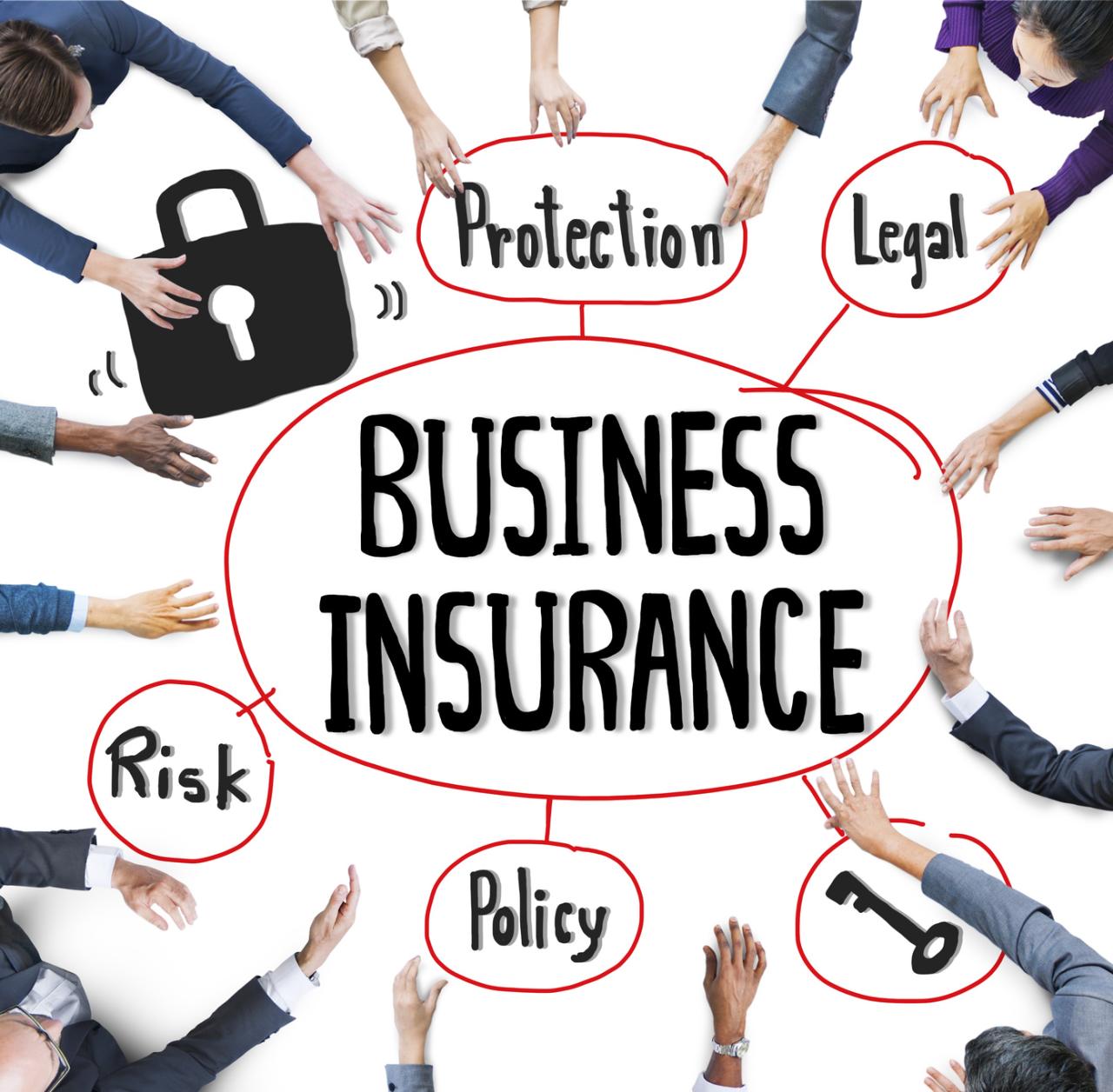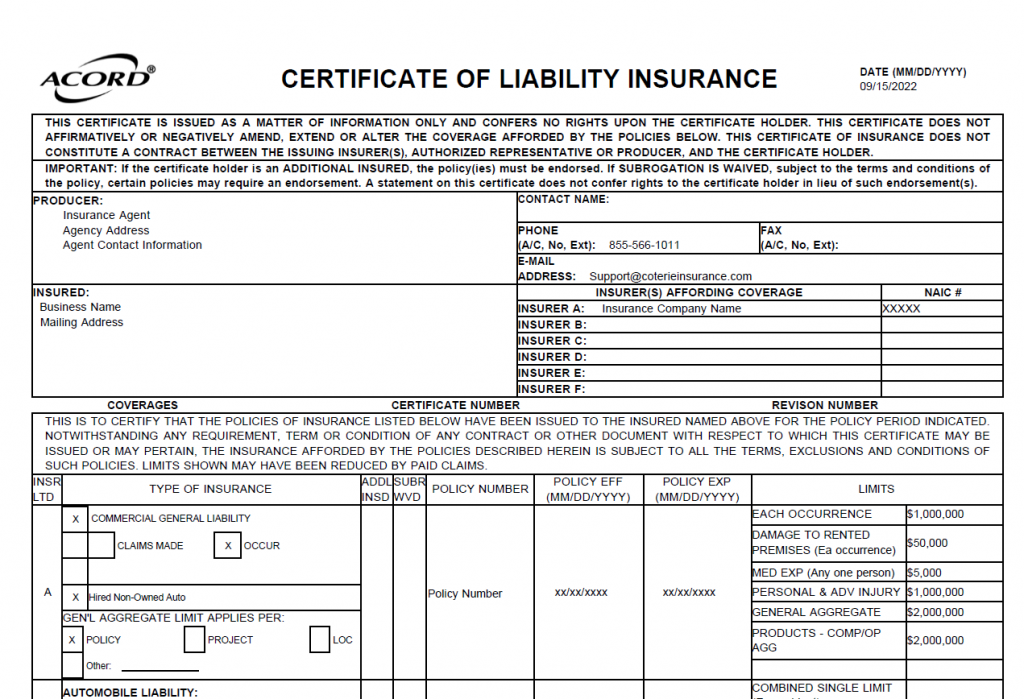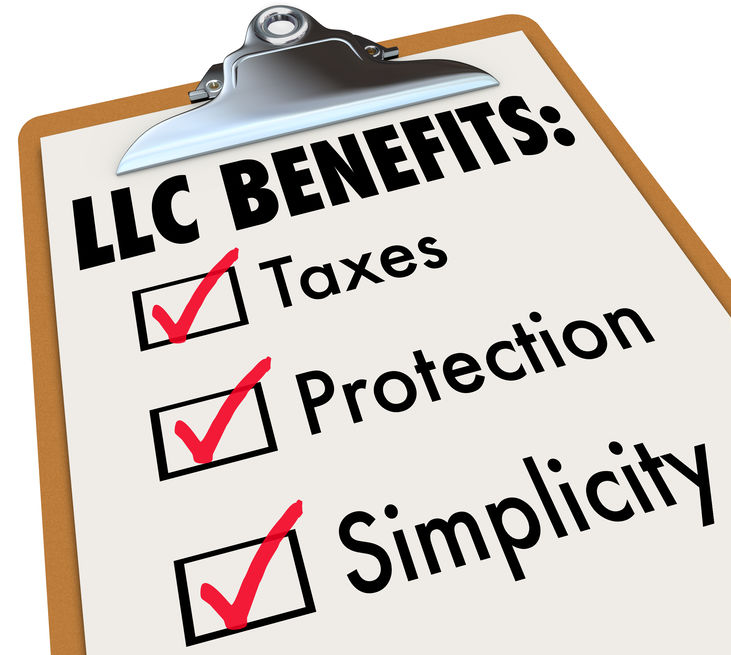For entrepreneurs venturing into the world of LLCs, navigating the complex landscape of small business insurance is crucial. This guide delves into the essential insurance types, exploring the intricacies of liability, property, and cyber coverage, all while emphasizing the importance of legal compliance and risk management.
From general liability to workers’ compensation, understanding the nuances of each insurance category empowers LLC owners to make informed decisions, protect their assets, and ensure business continuity in the face of unforeseen events.
Understanding LLCs and Small Businesses
For entrepreneurs venturing into the business world, understanding the legal structure and common characteristics of small businesses is paramount. A Limited Liability Company (LLC) is a popular choice for many, offering a blend of liability protection and flexibility. Navigating the legal landscape of LLCs is crucial for success and requires a deep understanding of compliance requirements.
The Legal Structure of an LLC
An LLC is a legal entity that combines the features of a partnership and a corporation. It provides limited liability protection for its owners, known as members, meaning their personal assets are shielded from business debts and liabilities. LLCs are often favored for their flexibility in management and taxation, allowing members to choose how they want to operate and be taxed.
Common Characteristics of Small Businesses
Small businesses are the backbone of many economies, contributing significantly to job creation and economic growth. They typically share certain characteristics, including:
- Limited resources: Small businesses often operate with fewer financial resources than larger corporations, requiring them to be resourceful and efficient.
- Focus on niche markets: Many small businesses cater to specific customer needs or market segments, allowing them to compete effectively against larger players.
- Strong customer relationships: Building and maintaining strong relationships with customers is crucial for small businesses, as personalized service and attention can be a significant competitive advantage.
- Agile decision-making: Small businesses often have streamlined decision-making processes, enabling them to adapt quickly to changing market conditions.
Legal Compliance for LLCs
Maintaining legal compliance is essential for LLCs to operate smoothly and avoid potential legal issues. This includes adhering to various regulations, such as:
- State registration: LLCs must be registered with the state where they are formed, filing articles of organization and complying with state-specific requirements.
- Tax compliance: LLCs must file annual tax returns, pay taxes, and comply with relevant tax laws. The specific tax structure can vary depending on the LLC’s operating agreement and state regulations.
- Labor laws: If an LLC employs individuals, it must comply with federal and state labor laws regarding wages, hours, and working conditions.
- Contractual obligations: LLCs must ensure their contracts are legally sound and enforceable, protecting their interests in business transactions.
Types of Insurance for LLCs
Securing the right insurance coverage is crucial for LLCs, providing a financial safety net against potential risks and protecting your business assets. Understanding the various types of insurance available and choosing the appropriate ones for your specific needs is essential.
Essential Insurance Types for LLCs
The following insurance types are generally considered essential for most LLCs:
- General Liability Insurance: This policy protects your business from financial losses arising from third-party claims of bodily injury or property damage caused by your business operations or your employees. For instance, if a customer trips and falls in your store, general liability insurance can cover legal costs and any resulting settlements or judgments.
- Professional Liability Insurance (E&O): Also known as errors and omissions insurance, this policy protects professionals, such as consultants, designers, or accountants, from claims of negligence, errors, or omissions in their professional services. For example, if a financial advisor provides incorrect advice that leads to financial losses for a client, E&O insurance can cover the resulting legal expenses and settlements.
- Property Insurance: This policy covers the physical assets of your business, such as your office building, equipment, inventory, and furniture, against various perils like fire, theft, vandalism, and natural disasters. If a fire damages your business property, property insurance can help you rebuild or replace the damaged assets.
- Business Income Insurance: This policy helps cover lost income if your business is forced to shut down due to a covered event, such as a fire or natural disaster. Business income insurance can help you pay ongoing expenses and maintain your financial stability during the period of disruption.
Liability Insurance Options for Small Businesses
LLCs have several liability insurance options to consider, each offering varying levels of coverage and protection.
- Commercial General Liability (CGL) Insurance: This policy is the most common type of liability insurance for small businesses. It provides broad coverage against a wide range of potential liabilities, including bodily injury, property damage, and personal injury. CGL insurance is typically essential for businesses that interact with the public or have employees.
- Product Liability Insurance: This policy protects manufacturers and distributors from claims arising from injuries or damages caused by their products. If a customer is injured by a defective product, product liability insurance can cover the legal costs and settlements.
- Umbrella Liability Insurance: This policy provides additional coverage beyond your existing liability policies, acting as an extra layer of protection against significant claims. Umbrella liability insurance can be particularly valuable for businesses with high-risk activities or a large number of assets.
Benefits of Workers’ Compensation Insurance for LLCs
Workers’ compensation insurance is a crucial protection for LLCs with employees. This policy provides financial benefits and medical care to employees who suffer work-related injuries or illnesses.
- Protection from Financial Losses: Workers’ compensation insurance protects your business from substantial financial losses due to employee injuries or illnesses. It covers medical expenses, lost wages, and disability benefits, reducing your financial liability.
- Reduced Legal Risks: Workers’ compensation insurance helps mitigate legal risks associated with employee injuries. By providing a system for handling claims, it reduces the likelihood of lawsuits and expensive legal battles.
- Improved Employee Morale: Having workers’ compensation insurance demonstrates your commitment to employee safety and well-being. It can improve employee morale and reduce the risk of turnover.
General Liability Insurance

General liability insurance is a crucial component of risk management for LLCs and small businesses. It protects your business from financial losses arising from third-party claims of bodily injury, property damage, or personal and advertising injury. This type of insurance provides financial coverage and legal defense in case of lawsuits or claims against your business.
Common Scenarios Covered by General Liability Insurance
General liability insurance offers broad coverage for a range of scenarios that could potentially lead to financial liabilities for your business. These scenarios can include:
- Bodily injury: If a customer slips and falls on your premises due to a hazard, resulting in an injury.
- Property damage: If your business’s operations cause damage to a customer’s property, such as a fire or a leak from your equipment.
- Personal and advertising injury: If your business is accused of libel, slander, copyright infringement, or other forms of defamation.
- Product liability: If a customer is injured by a product your business manufactures or sells.
- Professional liability: If a client suffers financial losses due to errors or omissions in your professional services.
Examples of Situations Where General Liability Insurance Is Crucial
Here are some examples of situations where general liability insurance is crucial for LLCs and small businesses:
- Retail businesses: A customer slips on a wet floor and suffers a broken leg.
- Construction companies: A worker falls from a ladder and sustains injuries while working on a construction site.
- Restaurants: A customer is served food contaminated with bacteria, leading to food poisoning.
- Professional service providers: An accountant makes an error in preparing a client’s tax return, resulting in financial penalties.
- Event organizers: A guest at an event is injured due to negligence on the part of the event organizer.
Professional Liability Insurance

Professional liability insurance, also known as errors and omissions (E&O) insurance, is a crucial type of coverage for LLCs that provide professional services. It safeguards your business against financial losses arising from claims of negligence, errors, or omissions in your professional work. This insurance policy acts as a safety net, protecting your business from potential lawsuits and the associated legal expenses.
Professions That Require Professional Liability Insurance
Many professions require professional liability insurance as a standard practice. This is because these professions inherently carry a higher risk of professional errors or negligence. Some examples include:
- Accountants and bookkeepers
- Architects and engineers
- Consultants
- Doctors and nurses
- Financial advisors
- Lawyers
- Real estate agents
- Software developers
Potential Risks Covered by Professional Liability Insurance
Professional liability insurance offers protection against a wide range of risks that could potentially harm your business. Some of the most common risks covered by this type of insurance include:
- Negligence: Failing to provide professional services with the expected level of care, leading to financial losses for the client.
- Errors and omissions: Mistakes or oversights in your professional work that result in harm to your client.
- Breach of contract: Failure to fulfill the terms of a contract with a client, leading to financial losses.
- Misrepresentation: Providing inaccurate or misleading information to a client, causing them financial harm.
- Defamation: Making false statements about a client that damage their reputation.
- Copyright infringement: Using copyrighted material without permission.
Property Insurance

Property insurance is a crucial component of comprehensive risk management for LLCs, providing financial protection against losses to business property. This type of insurance safeguards your assets, ensuring business continuity and financial stability in the face of unforeseen events.
Property Risks Covered
Property insurance for LLCs covers a wide range of risks that could potentially damage or destroy business property. These risks include:
- Fire: This is one of the most common causes of property damage, and property insurance typically covers losses caused by fire, smoke, and water damage resulting from firefighting efforts.
- Natural Disasters: Coverage extends to damage caused by natural disasters such as hurricanes, tornadoes, earthquakes, floods, and hailstorms. This protection is essential for businesses located in areas prone to these events.
- Theft and Vandalism: Property insurance protects against losses resulting from theft, burglary, and vandalism. It covers the cost of stolen or damaged property, including inventory, equipment, and fixtures.
- Other Perils: Property insurance policies often include coverage for other perils such as explosions, falling objects, and vehicle collisions. This broad coverage ensures protection against a wide range of potential risks.
Importance of Adequate Coverage
Having adequate property insurance is crucial for LLCs for several reasons:
- Financial Protection: Property insurance provides financial protection against the costs of replacing or repairing damaged property. This coverage is essential for businesses that rely heavily on physical assets, such as manufacturing facilities, retail stores, or restaurants.
- Business Continuity: Property insurance helps ensure business continuity by providing the financial resources needed to rebuild or replace damaged property. This is critical for businesses that cannot afford to be shut down for extended periods due to property damage.
- Lender Requirements: Many lenders require borrowers to have property insurance as a condition of obtaining a loan. This ensures that the lender’s investment is protected in case of property damage.
- Legal Liability: Property insurance can also provide coverage for legal liability arising from property damage. This coverage is important for businesses that are responsible for the safety of their employees, customers, and the public.
Business Interruption Insurance
Business interruption insurance is a crucial component of risk management for LLCs and small businesses. It safeguards your business from financial losses stemming from unforeseen events that disrupt your operations, preventing you from generating income. This coverage helps ensure your business can continue operating and recover from unexpected setbacks.
Scenarios Where Business Interruption Insurance is Essential
Business interruption insurance is vital in situations where your business is forced to cease operations due to unforeseen events. It provides financial support during these periods, allowing you to cover ongoing expenses and maintain your business’s viability.
- Natural Disasters: Events like floods, earthquakes, hurricanes, and wildfires can cause extensive damage to your business property, leading to temporary closure. Business interruption insurance helps cover lost income and ongoing expenses during the recovery period.
- Fire and Other Accidents: Accidents like fires, explosions, and equipment malfunctions can result in significant damage to your business property, disrupting operations and leading to financial losses. Business interruption insurance provides coverage for lost income and expenses incurred while repairs are underway.
- Power Outages: Extended power outages can significantly impact businesses reliant on electricity, halting production and hindering operations. Business interruption insurance can help cover losses due to power outages, allowing you to resume operations quickly.
- Governmental Orders: Government-imposed closures due to public health emergencies, such as pandemics, can force businesses to temporarily shut down. Business interruption insurance can provide financial support during these periods, mitigating the financial impact of forced closures.
Examples of Losses Covered by Business Interruption Insurance
Business interruption insurance offers protection against various financial losses incurred due to unforeseen events that disrupt your business operations. This coverage can help mitigate the financial impact of these events, allowing your business to recover and resume operations.
- Lost Revenue: Business interruption insurance can cover the loss of income you would have generated had your business been operational during the interruption period.
- Continuing Expenses: This coverage helps cover ongoing expenses such as rent, utilities, salaries, and loan payments even when your business is closed due to an insured event.
- Extra Expenses: Business interruption insurance can also cover additional expenses incurred to resume operations, such as temporary relocation costs, expedited repairs, and increased security measures.
Cyber Liability Insurance
In today’s digital landscape, cyberattacks are becoming increasingly sophisticated and prevalent. Small businesses are particularly vulnerable, as they often lack the resources to implement robust cybersecurity measures. Cyber liability insurance is a critical component of any comprehensive risk management strategy for LLCs, providing financial protection against the devastating consequences of cyber incidents.
Cyber Threats Faced by Small Businesses
Small businesses face a range of cyber threats that can disrupt operations, damage reputation, and lead to significant financial losses. These threats include:
- Data breaches: Hackers may gain unauthorized access to sensitive customer data, such as credit card information, personal details, and proprietary business information. This can result in legal liabilities, regulatory fines, and reputational damage.
- Ransomware attacks: Cybercriminals can encrypt a business’s data and demand payment to unlock it. This can cripple operations, leading to lost productivity, revenue, and potential business interruption.
- Phishing scams: Employees may be tricked into clicking on malicious links or opening infected attachments, allowing hackers to gain access to company systems. This can lead to data breaches, malware infections, and other cyberattacks.
- Denial-of-service (DoS) attacks: Hackers can flood a business’s website or network with traffic, making it inaccessible to customers and employees. This can result in lost sales, productivity, and customer dissatisfaction.
Cyber Liability Insurance Coverage
Cyber liability insurance provides financial protection against the costs associated with cyber incidents. Coverage typically includes:
- Data breach response: This coverage helps businesses manage the costs of responding to a data breach, including legal fees, forensic investigations, credit monitoring services, and notification expenses.
- Ransomware extortion: Cyber liability insurance can cover ransom payments, although there are often limitations on the amount of coverage.
- Business interruption: This coverage helps businesses recover lost income and expenses incurred due to a cyberattack that disrupts operations.
- Cybercrime defense: Cyber liability insurance can provide legal defense and representation in the event of a cybercrime lawsuit.
- Privacy liability: This coverage protects businesses from claims arising from the unauthorized use or disclosure of personal information.
Workers’ Compensation Insurance
Workers’ compensation insurance is a type of insurance that protects businesses from financial liability in the event that an employee is injured or becomes ill on the job. This type of insurance is crucial for businesses of all sizes, as it can help to protect them from significant financial losses.
Legal Requirements for Workers’ Compensation Insurance
Most states require employers to carry workers’ compensation insurance. The specific requirements vary from state to state, but generally, employers are required to provide coverage for employees who are injured or become ill as a result of their work. These requirements are in place to ensure that employees who are injured or become ill on the job have access to medical care and lost wages.
Coverage Provided by Workers’ Compensation Insurance
Workers’ compensation insurance provides coverage for a variety of expenses related to work-related injuries or illnesses, including:
- Medical expenses, including doctor’s visits, hospital stays, and rehabilitation.
- Lost wages, including a portion of the employee’s salary while they are unable to work.
- Permanent disability benefits, if the employee suffers a permanent injury.
- Death benefits, if the employee dies as a result of a work-related injury or illness.
The specific benefits provided by workers’ compensation insurance vary from state to state.
Situations Where Workers’ Compensation is Necessary
Workers’ compensation insurance is necessary in a variety of situations, including:
- If an employee is injured while performing their job duties.
- If an employee becomes ill as a result of their work environment.
- If an employee is injured while commuting to or from work.
- If an employee is injured while attending a work-related event.
It is important to note that workers’ compensation insurance does not cover injuries that occur outside of the scope of employment.
Factors Influencing Insurance Costs
The cost of LLC insurance premiums is influenced by a variety of factors. Understanding these factors can help LLC owners make informed decisions about their insurance needs and potentially reduce their costs.
Industry Type
The type of industry in which an LLC operates has a significant impact on its insurance costs. Certain industries are considered higher risk than others, leading to higher premiums. For example, construction companies face greater risks of accidents and injuries compared to a consulting firm, resulting in higher workers’ compensation insurance premiums. Similarly, healthcare providers may have higher malpractice insurance costs due to the potential for medical errors.
Finding the Right Insurance Coverage

Navigating the world of insurance can be overwhelming, especially for a new LLC owner. The right insurance coverage is essential to protect your business from financial losses, lawsuits, and unforeseen events. This section Artikels a step-by-step guide to help you make informed decisions about your insurance needs.
Identifying Your Business’s Specific Risks
The first step in finding the right insurance coverage is to understand the unique risks your business faces. This requires a thorough assessment of your operations, industry, and potential liabilities.
- Analyze your business activities: What services or products do you offer? Do you work with customers directly? Do you have employees? Do you operate from a physical location? Answering these questions will help identify potential risks associated with your day-to-day operations.
- Research industry-specific risks: Every industry has its own unique set of risks. For example, a construction company faces different risks than a software development firm. Research common risks in your industry to understand potential liabilities.
- Consider potential lawsuits: Think about situations where you could be sued for negligence, product liability, or breach of contract. This will help determine the need for specific types of insurance like general liability or professional liability.
Determining Necessary Insurance Coverage
Once you’ve identified your business’s specific risks, you can start determining the necessary insurance coverage.
- General Liability Insurance: This is often considered the most crucial insurance for LLCs. It protects your business from claims of bodily injury, property damage, and personal injury caused by your operations. General liability insurance is essential for businesses that interact with customers or the public, as it covers a wide range of potential liabilities.
- Professional Liability Insurance: This coverage is essential for professionals who provide advice or services. It protects your business from claims of negligence, errors, or omissions in your work. For example, consultants, accountants, and lawyers often require professional liability insurance.
- Property Insurance: If your business operates from a physical location, you need property insurance to protect your building, equipment, and inventory from damage caused by fire, theft, or natural disasters. This coverage can also protect your business against financial losses due to business interruption.
- Business Interruption Insurance: This coverage helps your business recover from financial losses due to a temporary shutdown caused by a covered event, such as a fire or natural disaster. It covers lost income, continuing expenses, and other business costs.
- Cyber Liability Insurance: In today’s digital world, cyberattacks are a growing concern. Cyber liability insurance protects your business from financial losses due to data breaches, cyber extortion, and other cyber-related incidents.
- Workers’ Compensation Insurance: If your business employs people, workers’ compensation insurance is mandatory in most states. It provides benefits to employees who are injured or become ill on the job, covering medical expenses, lost wages, and rehabilitation costs.
Finding Reliable Insurance Providers
Once you know the types of insurance you need, you can start shopping around for providers.
- Get recommendations: Ask other business owners, industry associations, or your accountant for recommendations on reliable insurance providers. Word-of-mouth referrals can be valuable when choosing an insurance provider.
- Compare quotes: Get quotes from multiple insurance providers to compare coverage, premiums, and customer service. Use online comparison tools or work with an independent insurance broker to streamline the process.
- Check provider financial stability: Ensure the insurance provider you choose is financially stable and has a good reputation for paying claims promptly. You can check the provider’s financial ratings on websites like A.M. Best or Standard & Poor’s.
Consulting with an Insurance Agent
Working with an insurance agent can be a valuable asset in finding the right coverage.
- Personalized advice: An experienced insurance agent can assess your specific needs and risks, providing personalized advice on the best insurance policies for your business. They can also help you understand the intricacies of different policies and ensure you have adequate coverage.
- Negotiating premiums: Insurance agents often have relationships with multiple providers and can help you negotiate better premiums and coverage terms.
- Claim assistance: In the event of a claim, an insurance agent can help you navigate the process, ensuring you receive the benefits you are entitled to.
Final Review

Ultimately, securing the right LLC small business insurance is an investment in peace of mind. By carefully assessing your specific needs, seeking expert guidance, and staying informed about industry trends, LLC owners can build a robust insurance strategy that safeguards their business and empowers them to focus on growth and success.

